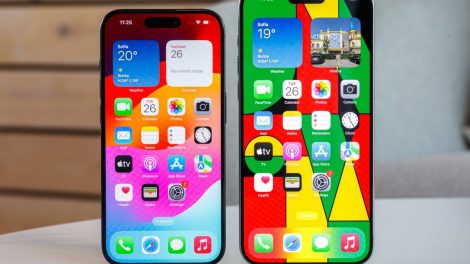A controversial new European Union law is about to fundamentally shift the iPhone app landscape. The Digital Markets Act (DMA) will soon mandate that iPhones offer support for third-party app stores as an alternative to Apple’s walled garden.
But Apple Fellow Phil Schiller is sounding the alarm on potential downsides of this forced opening.
In a recent interview with Fast Company, Schiller argued introducing unvetted app stores onto iPhones risks compromising security, privacy and the trusted ecosystem Apple has cultivated.
As the DMA deadline approaches, we analyze Schiller’s warnings and examine how iPhone users may need to adapt in an age of app store plurality.
Inside the Digital Markets Act Forcing App Store Changes
The Digital Markets Act (DMA) represents sweeping new big tech regulations introduced by the European Union in 2022 and going into effect in 2023.
Its goal? Increase competition and consumer choice by curtailing anti-competitive behaviors by companies designated internet “gatekeepers” – a group comprising Apple, Google, Meta and Microsoft.
Specifically for iPhones, the DMA mandates that third-party app stores must be permitted. This provision intends to offer users alternative places to discover and download iOS apps beyond Apple’s walled App Store garden.
Apple’s Warnings Against “Unvetted” Content
Apple Fellow Phil Schiller oversees the App Store and voices strong opposition to forced third-party iOS app stores. Per Schiller, “there are things that we have not allowed on our App Store – things that we didn’t think would be safe or appropriate.”
Implicit in this statement lies concerns that legally requiring alternate app stores will inevitably open the door to apps Apple rightly prohibits – those containing malware, scams, inappropriate material and more hazardous content.
With iPhone security checks built around scrutinizing App Store submissions, iOS ecosystem protection remains dependent on app vetting processes before deployment and distribution.
Precedent From Android App Store Landscapes
Indeed, we need only look at the Android ecosystem to glimpse the potential downsides of low barrier app store entry.
The Google Play Store dominates Android, but countless other app stores exist trying to capture volume through reduced vetting stringency, especially in overseas markets.
And despite Google’s malware check evolvement initiatives, alternative Android app stores continue posing heightened security and privacy risks due to distributing less vetted apps.
Given Android’s global majority OS status, increasing circulation of malicious or counterfeit apps on unsupervised third party stores enables wider reaching damage when they slip through checks.
Impacts to User Security
Schiller clearly fears bringing comparable app risks into Apple’s walled garden. So what might lax iOS vetting mean for user security?
On the malware front,StreamHandler, privacy consent gamification reduction and Hack3rApp type plays could coerce users toward phishing attempts, location access or other deceptive ends from less scrupulous developers.
Likewise, terror and violence linked apps banned by Apple such as Gab could reach cobranded resurgence by using third party app stores as end run distribution channels.
Both examples illuminate hazards around permitting apps rejected from App Store entry, thereby reducing shields against dangerous or illicit iOS content.
User Privacy Complications
Alongside security impacts, Schiller hints at unease around how third party app stores may approach privacy protections differently.
Apple has committed deeply to privacy preservation initiatives from App Tracking Transparency to on device data processing for Siri and more.
However alternate stores may lack incentives, mandates or competence to enforce similar standards, such as requiring justification for accessing sensitive user data like location or contacts.
This opens the door to apps wantonly collecting analytics for ad targeting or usage tracking where users cannot reasonably consent or opt-out.
Navigating the Mandated App Store Future
As the DMA deadline nears, iPhone users will soon face an environment allowing additional app discovery options but with added diligence duties.
Some may welcome and leverage choice judiciously for unlocked capabilities from stores like Cydia or for gaming.
But the wise majority would benefit tremendously from adopting heightened app literacy conscientiousness – paying closer attention to permission requests, assessing credibility signals around developer history and reading privacy policies more carefully as part of vetting responsibilities.
Emphasizing media literacy and critical thinking skills around software also grows in importance for younger users should third party app store growth introduce harmful content risks.
While the DMA aims to expand user choice and foster App Store competition, it may test how well consumers can self-determine trustworthiness as circumvented platform guardrails reshape iOS markets.










Add Comment